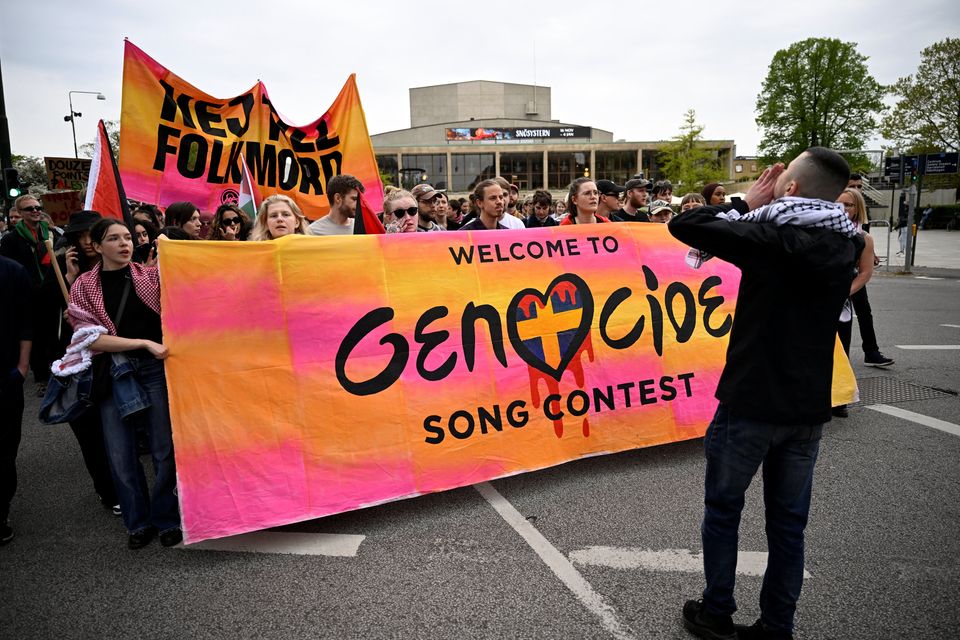How did Israel succeed at Eurovision despite protests and boos?

Israel’s participation in the 2024 Eurovision Song Contest in Malmo, Sweden, when it is accused of continuing to commit war crimes, including “genocide” in Gaza, has sparked worldwide protests.
In Malmo, thousands of demonstrators, including Swedish climate activist Greta Thunberg, protested against the double standards of the world toward Israel while Russia was excluded from the contest because of its aggression against Ukraine.
The world is also discussing the reasons for the success of Israeli representative Eden Golan’s song “Hurricane,” which is thought to refer to the series of events after Oct. 7, in the final.

As per the rules, the “big” European countries Germany, France, the U.K., Italy, and Spain competed directly in the finals, while Israel, Ukraine, Greece, Croatia, Cyprus, Ireland, Estonia, Serbia, Luxembourg, Switzerland, Portugal, Latvia, Georgia, Georgia, Slovenia, Austria, Armenia, Lithuania, the Netherlands, Finland, Norway and host Sweden also competed in the contest.

The artists representing Portugal, the U.K., Ireland, Switzerland, Norway, Norway, Denmark, Lithuania, Finland and San Marino in the Eurovision Song Contest had called for an “immediate and sustainable cease-fire in Gaza” and recently, Belgium’s Flemish-language public broadcaster VRT stopped broadcasting at the start of the second semi-final of Eurovision in protest against Israel’s attacks on Gaza.

Many from across Europe have called for Israel to be banned from the Eurovision Song Contest because of its attacks on Gaza. So how did Israel achieve success?
On May 11, the final of the Eurovision Song Contest was held in Malmo, Sweden. Despite calls for Israel to be banned from the contest, Israel continued to compete and achieved significant success, finishing in fifth place with 375 points.
Many in the audience said that Israel’s exclusion was an example of the hypocrisy of Western imperialism, while Russia was banned from the contest after the invasion of Ukraine.
The reasons behind Israel’s success
According to experts, Israel’s success at Eurovision can be attributed to several factors. The first factor is that Eurovision is a contest determined by musical judging and audience votes. Israel has a large support base among Islamaphobic groups, which may have contributed to the audience votes.
Another factor is the soft influence of Israel’s cultural success on an international platform such as Eurovision and the support of secret lobbies to contribute to the country’s public diplomacy in international politics.
It is believed that many countries secretly support Israel to help it gain more soft recognition in the international arena. Therefore, political factors may influence the voting behavior of some countries.
Another final factor is the quality and artistic value of Israel’s Eurovision performance, which may have brought Israel the final and then success. The visual and entertaining element in Israel’s professional stage performance may have attracted the attention of the audience.



